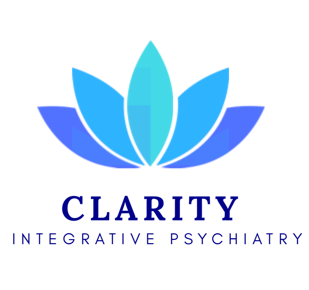What Is Ketamine-Assisted Psychotherapy?A New Frontier in Mental Health Treatment
In recent years, there has been growing interest in unconventional therapies for mental health disorders, one of which is ketamine-assisted psychotherapy/therapy (KAP or KAT). This innovative treatment combines the use of ketamine, a medication traditionally used as an anesthetic, with psychotherapy to help people struggling with various mental health issues. But what exactly is KAP, how does it work, and who can benefit from it? Let's dive in.
Understanding Ketamine: A Brief Overview
Ketamine was initially developed as an anesthetic for surgical procedures, but its effects on mood and perception have led researchers to explore its use in treating mental health conditions. In sub-anesthetic doses, ketamine has been found to provide rapid relief from symptoms of depression, anxiety, and PTSD, particularly in individuals who have not responded well to traditional medications, offering a new ray of hope in the treatment of these conditions.
What Is Ketamine-Assisted Psychotherapy?
Ketamine-assisted psychotherapy combines the pharmacological effects of ketamine with the therapeutic insights gained in a psychotherapeutic setting. During a KAP session, a patient receives a carefully controlled dose of ketamine under the close supervision of a trained healthcare professional. The experience is often paired with psychotherapy, which can take place before, during, or after the ketamine administration, ensuring a safe and secure environment for the patient.
The purpose of KAP is to create a safe space where patients can explore their feelings, thoughts, and experiences while under the influence of ketamine, which can alter perceptions and reduce inhibitions. Some patients describe the experience as a feeling of detachment from their usual thought patterns, allowing them to process emotions and memories that may be too difficult to confront in a typical state of mind.
How Does Ketamine-Assisted Psychotherapy Work?
Ketamine works on brain receptors related to mood regulation and emotional response, particularly the NMDA receptor, which plays a role in synaptic plasticity. The rapid action of ketamine can lead to an immediate decrease in depressive symptoms, which may create the opportunity for more profound therapeutic work during the psychotherapy session. By temporarily modifying the brain's response to stress and trauma, ketamine can help patients open up about their experiences, gain new perspectives, and enhance the effectiveness of traditional talk therapies.
Who Can Benefit from KAP?
Ketamine-assisted psychotherapy may be particularly beneficial for individuals dealing with:
Treatment-Resistant Depression (TRD): Those who have not found relief from traditional antidepressants.
Anxiety Disorders: Patients struggling with severe anxiety that interferes with daily life.
Post-Traumatic Stress Disorder (PTSD): Individuals seeking to process trauma in a new light.
Substance Use Disorders: KAP may aid in the therapeutic process for those trying to overcome addiction.
Individuals considering KAP should consult with a qualified mental health professional. This consultation will help determine if KAP is an appropriate option for their specific situation and provide the necessary guidance and support in their decision-making process.
What to Expect in a KAP Session
A typical KAP session involves several key elements:
Preparation: Initial sessions focus on building rapport with the therapist and discussing treatment goals.
Ketamine Administration: Patients receive ketamine in a controlled environment, typically as an intravenous infusion, an oral tablet, or a nasal spray. The dosage is carefully monitored by trained staff.
Therapeutic Engagement: The therapist will guide discussions during the ketamine experience to help patients explore emotions, thoughts, and memories that arise.
Integration: Follow-up sessions are vital for processing the experience and incorporating insights gained during the ketamine session into ongoing therapy.
Ketamine-assisted psychotherapy represents a promising new approach to mental health treatment, particularly for those who have found little relief from conventional methods. While research is still ongoing, the potential benefits of KAP showcase how interdisciplinary strategies in mental health can open new pathways for healing. If you or someone you know is struggling with mental health challenges, consider exploring the possibility of KAP with a qualified professional, as it might just be the transformative experience needed on the road to recovery.
Are you ready for some Clarity? Contact us to learn more.
If you are experiencing a mental health crisis, contact 911 or text the Suicide and Crisis Hotline at 988.
